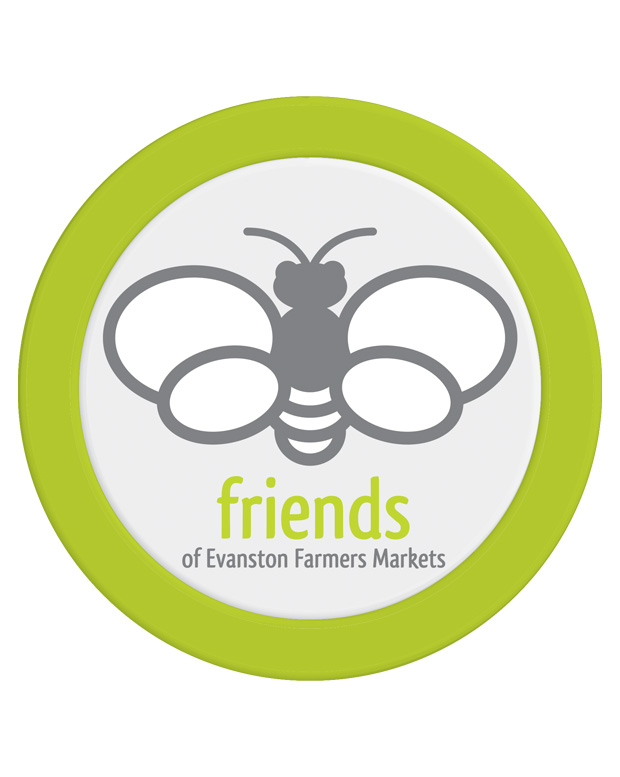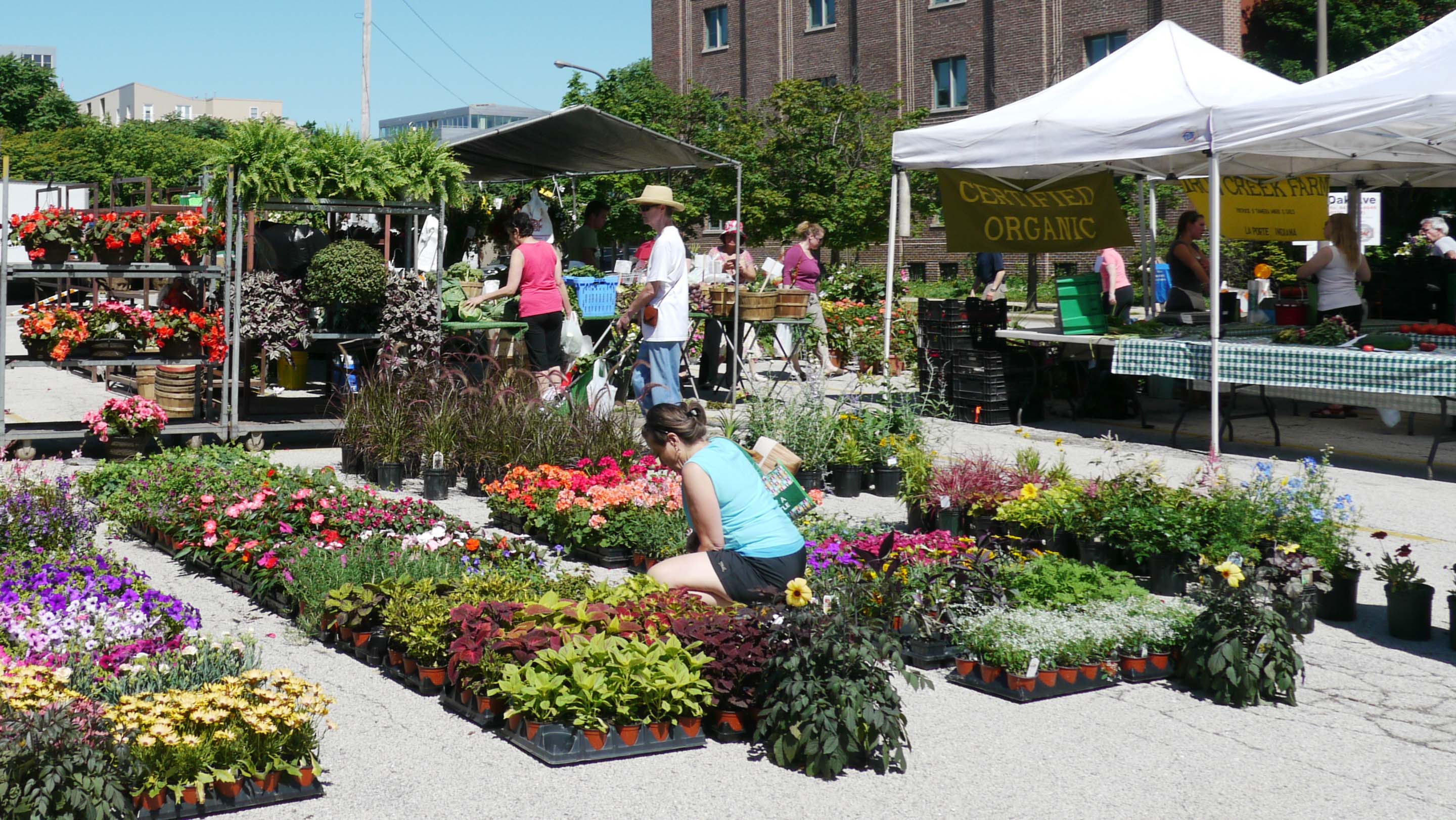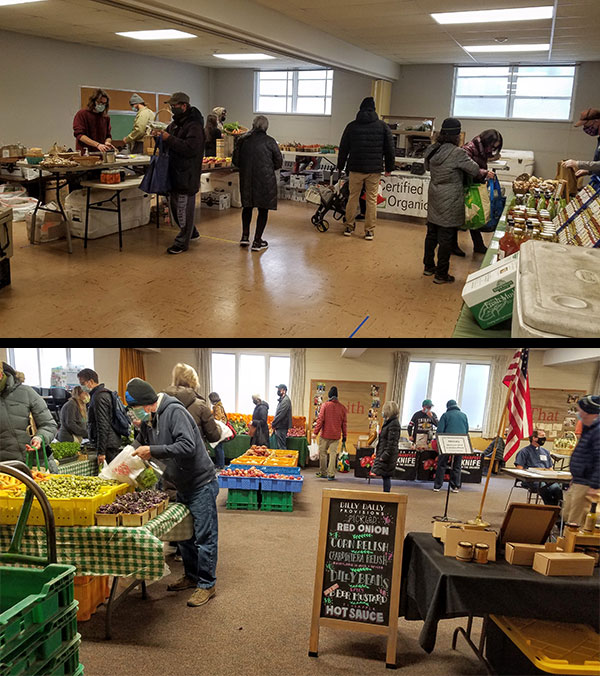Evanston Farmers Market: A Vibrant Celebration Of Local Produce And Community
Every Saturday morning from May through October, the Evanston Farmers Market transforms a bustling city street into a vibrant marketplace where farmers, artisans, and local vendors come together to offer fresh produce, handmade goods, and delicious treats. This market has become a beloved institution in Evanston, Illinois, drawing visitors from all over the Chicagoland area. If you're looking for the freshest seasonal produce, artisanal products, or simply a way to connect with your community, the Evanston Farmers Market is the perfect destination.
For over two decades, the Evanston Farmers Market has been a cornerstone of the local economy, supporting small businesses and sustainable farming practices. It's more than just a place to shop; it's an experience that celebrates the rich agricultural heritage of the region while fostering a sense of community among its participants. Whether you're a long-time resident or a first-time visitor, the market offers something for everyone.
As you stroll through the market, you'll encounter an array of colorful fruits and vegetables, freshly baked goods, and unique crafts. The Evanston Farmers Market is not only a source of fresh, locally grown food but also a platform for local artisans and small business owners to showcase their talents. In this article, we'll explore everything you need to know about the Evanston Farmers Market, including its history, what to expect, and tips for making the most of your visit.
Read also:Too Short Age Understanding The Challenges And Solutions
Table of Contents
- History of Evanston Farmers Market
- Location and Hours
- Types of Vendors and Products
- Community Engagement
- Benefits of Shopping at Farmers Markets
- Tips for Visiting Evanston Farmers Market
- Nutritional Benefits of Local Produce
- Seasonal Highlights
- Sustainability and Eco-Friendly Practices
- Future Plans for Evanston Farmers Market
History of Evanston Farmers Market
The Evanston Farmers Market traces its roots back to 2000 when a group of local residents and business owners came together to create a space where farmers and artisans could sell their goods directly to the public. Initially held in a small parking lot, the market quickly outgrew its original location and moved to its current site on Davis Street, one of Evanston's main thoroughfares. Over the years, the market has evolved into a thriving hub of activity, attracting thousands of visitors each week.
The market's success can be attributed to its commitment to quality, sustainability, and community engagement. By prioritizing local vendors and organic produce, the Evanston Farmers Market has established itself as a leader in the farmers market movement. Today, it stands as a testament to the power of community-driven initiatives in fostering economic growth and environmental stewardship.
Evolution Over the Years
Since its inception, the Evanston Farmers Market has undergone several changes to meet the growing demands of its customers. From expanding its vendor base to incorporating new programs like cooking demonstrations and live music, the market continues to innovate while staying true to its core mission. Each year, the market introduces new features to enhance the visitor experience, such as mobile payment options and expanded product offerings.
Location and Hours
The Evanston Farmers Market is conveniently located on Davis Street between Chicago Avenue and Asbury Avenue in downtown Evanston. This central location makes it easily accessible by car, public transportation, or on foot. The market operates every Saturday from May through October, rain or shine, from 7:00 AM to 1:00 PM. Visitors are encouraged to arrive early to take advantage of the freshest selections and avoid the crowds.
Getting to the Market
- By Car: Ample parking is available in nearby garages and lots.
- By Transit: The market is just steps away from the Davis Street CTA Purple Line station and several bus routes.
- By Bike: Bike racks are provided for those who prefer to pedal their way to the market.
Types of Vendors and Products
One of the highlights of the Evanston Farmers Market is its diverse array of vendors, each offering unique products that cater to a wide range of tastes and preferences. From organic fruits and vegetables to handmade jewelry and artisanal cheeses, the market provides something for everyone. Below are some of the most popular categories of vendors you'll find at the market:
Categories of Vendors
- Fresh Produce: Locally grown fruits and vegetables, often harvested the same day.
- Baked Goods: Freshly baked bread, pastries, and desserts from local bakeries.
- Artisanal Foods: Handcrafted jams, pickles, honey, and other specialty items.
- Crafts and Gifts: Unique handmade crafts, jewelry, and home decor.
- Ready-to-Eat Foods: Prepared meals and snacks for those on the go.
Community Engagement
The Evanston Farmers Market is more than just a place to shop; it's a gathering spot where community members can connect with one another. The market hosts a variety of events and activities throughout the season, including live music performances, cooking demonstrations, and educational workshops. These events not only entertain but also educate visitors about the importance of supporting local agriculture and sustainable practices.
Read also:March 6 Birthdays Celebrating The Lives Of Remarkable Individuals
Community Events
- Live Music: Enjoy performances by local musicians every Saturday.
- Cooking Demos: Watch chefs create delicious dishes using ingredients from the market.
- Workshops: Learn about topics like composting, gardening, and nutrition.
Benefits of Shopping at Farmers Markets
Shopping at farmers markets like the one in Evanston offers numerous benefits, both for individuals and the community as a whole. By purchasing directly from farmers and artisans, consumers can enjoy fresher, higher-quality products while supporting local economies. Additionally, farmers markets often provide access to organic and sustainably grown produce, which can have positive impacts on both health and the environment.
Key Benefits
- Freshness: Produce is often harvested within 24 hours of being sold.
- Quality: Many vendors offer organic and non-GMO options.
- Community Support: Purchases directly benefit local farmers and businesses.
- Sustainability: Reduces the carbon footprint associated with long-distance transportation.
Tips for Visiting Evanston Farmers Market
To make the most of your visit to the Evanston Farmers Market, consider the following tips:
- Arrive Early: Get there before 9:00 AM to secure the best selection of products.
- Bring Cash: While many vendors accept credit cards, cash is often preferred.
- Bring Reusable Bags: Help reduce waste by bringing your own bags and containers.
- Taste Before You Buy: Many vendors offer samples, so take advantage of this opportunity to try new products.
- Engage with Vendors: Don't hesitate to ask questions about the products or farming practices.
Nutritional Benefits of Local Produce
One of the standout features of the Evanston Farmers Market is the availability of fresh, locally grown produce. Consuming fruits and vegetables that are harvested at their peak ripeness ensures maximum nutritional value. Studies have shown that locally sourced produce often contains higher levels of vitamins, minerals, and antioxidants compared to conventionally grown options that have been transported long distances.
Why Local Produce is Better
- Fresher: Shorter time from farm to table preserves nutrients.
- Healthier: Often grown without harmful pesticides or additives.
- Sustainable: Supports environmentally friendly farming practices.
Seasonal Highlights
Each season brings its own unique offerings to the Evanston Farmers Market. From the first strawberries of spring to the pumpkins of fall, there's always something exciting to discover. Below are some seasonal highlights you can look forward to:
Seasonal Produce
- Spring: Asparagus, radishes, and spring onions.
- Summer: Berries, tomatoes, and sweet corn.
- Fall: Apples, squash, and pumpkins.
Sustainability and Eco-Friendly Practices
The Evanston Farmers Market is committed to promoting sustainability and reducing its environmental impact. Vendors are encouraged to use eco-friendly packaging and practices, while the market itself provides recycling and composting bins for visitors. By prioritizing sustainability, the market sets an example for other communities to follow.
Green Initiatives
- Composting: All food waste is collected and composted.
- Recycling: Recycling bins are available throughout the market.
- Eco-Friendly Packaging: Many vendors use biodegradable or reusable packaging.
Future Plans for Evanston Farmers Market
As the Evanston Farmers Market continues to grow in popularity, plans are underway to expand its offerings and reach. Future initiatives include increasing the number of winter market events, introducing new vendor categories, and enhancing digital platforms to better connect with customers. The market remains committed to fostering a vibrant, inclusive community that celebrates local agriculture and craftsmanship.
Upcoming Developments
- Winter Markets: Expanding the market season to include winter events.
- New Vendors: Introducing new categories of vendors, such as florists and beekeepers.
- Online Presence: Enhancing the market's website and social media channels.
Conclusion
The Evanston Farmers Market is much more than just a place to shop; it's a celebration of local agriculture, community spirit, and sustainable living. By supporting the market, you're not only gaining access to some of the freshest and most nutritious produce available but also contributing to the economic vitality of the region. Whether you're a long-time resident or a first-time visitor, the market offers something for everyone to enjoy.
We invite you to visit the Evanston Farmers Market and experience the magic for yourself. Share your thoughts and experiences in the comments below, and don't forget to check out our other articles for more insights into the world of farmers markets and local agriculture. Together, we can build a more sustainable and connected community.


